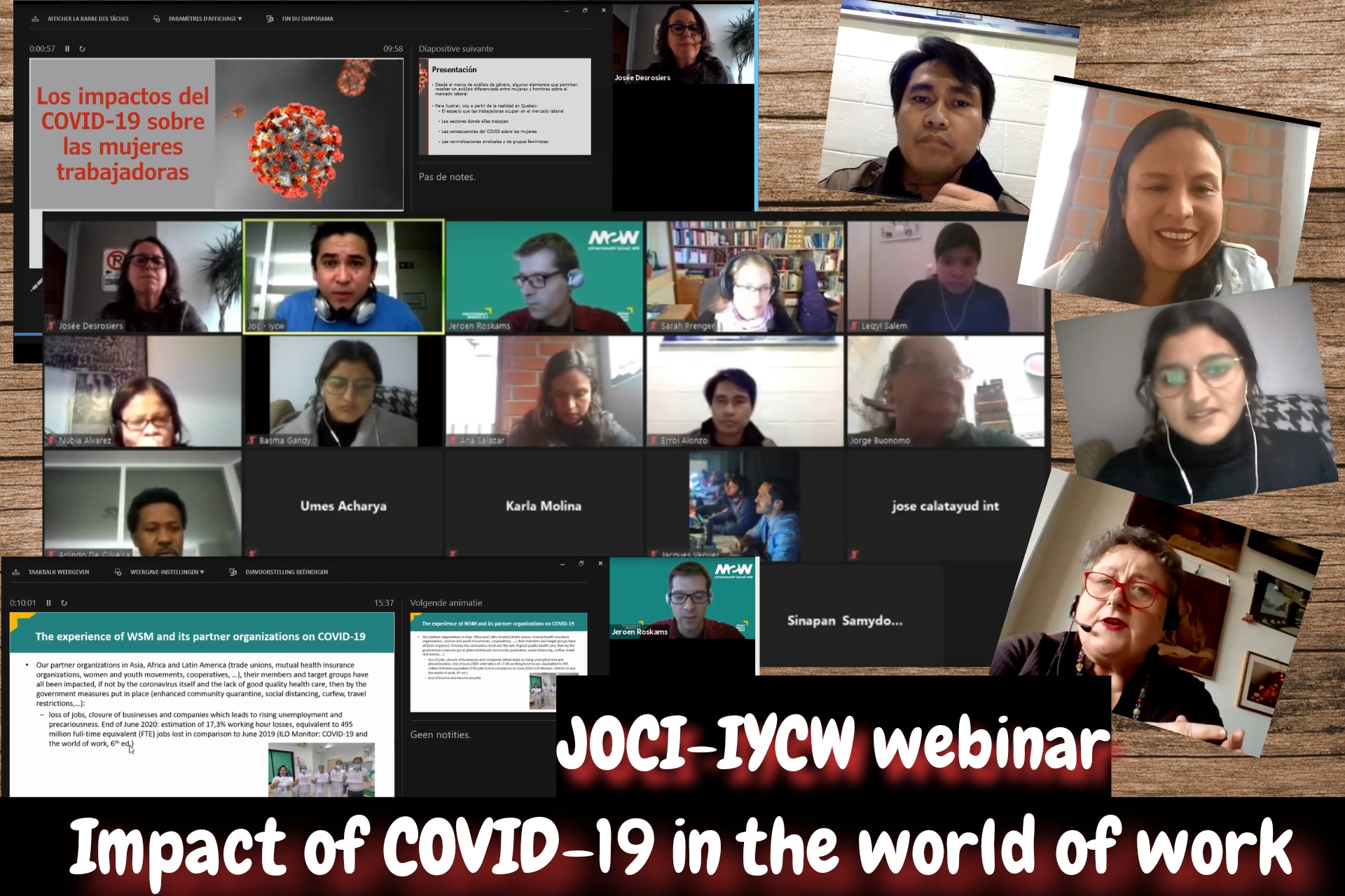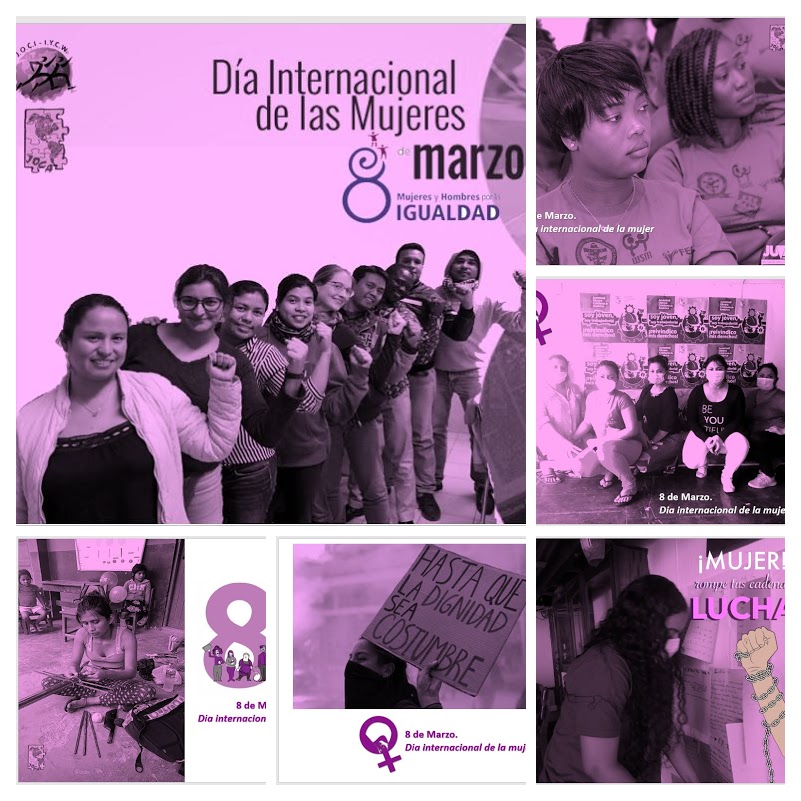
Young workers have been particularly affected by the pandemic that hit all continents in 2020. Governments and actors of society have to unite to support them, as requested by the International Young Christian Workers (IYCW) based in Brussels and active on all continents.
With the title “The impact of Covid-19 on young workers,” the International Young Christian Workers (IYCW) has published, in about twenty pages, an analysis based on the See-Judge-Act method of the movement. It was presented at the beginning of a webinar that brought together over a hundred participants from more than 30 different countries on Saturday, December 12, despite the time differences. They included current and former YCW leaders, but also partners and supporters from all over the world, from Australia and Venezuela to Belgium, from Gabon to Argentina, from Sri Lanka and Canada to Tanzania, including members of other movements and organizations, such as the International Labour Organization (ILO).
An In-Depth Study
Quoting testimonies of YCW members from Egypt, Peru, Haiti, Germany, Japan, Brazil and the Philippines, this analysis first shows that due to the spread of Covid-19, young workers were among the first victims and they lost their sources of income, but also that the digitization of the (working) world has accelerated with both positive and negative consequences. The survey goes on to indicate that gender inequalities and injustices are even more pronounced and that migrants are particularly impacted, especially in refugee camps where it is, to say the least, difficult to respect social distancing! The lack of social protection is even more blatant, health is endangered as it is not being guaranteed at work, and reactions within the society vary greatly, with on the one hand many actions of solidarity and, on the other hand, many questions as to the real societal priorities.





 English
English  Español
Español  Français
Français